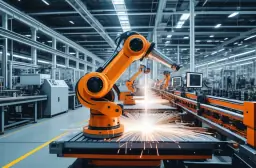How AI is Changing Digital Marketing, Future Strategy Shift
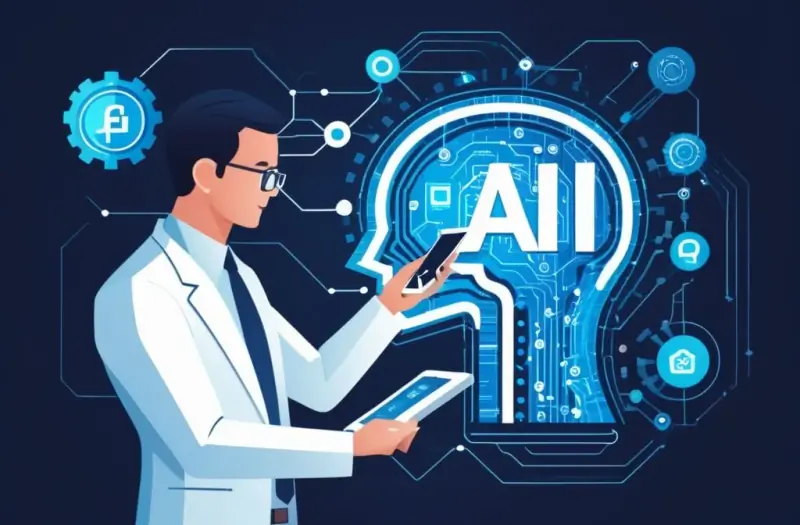
Table of Contents
Artificial intelligence (AI) is transforming nearly every industry, and digital marketing is no exception. As we move deeper into an era defined by technology and data, AI in digital marketing is becoming an essential tool for companies eager to stay competitive. This change isn’t merely about replacing humans with machines; it’s about creating more efficient, personalized, and effective marketing strategies. In this article, we’ll explore how AI is reshaping the future of digital marketing and how businesses can adapt to this new reality.
The Role of AI in Digital Marketing
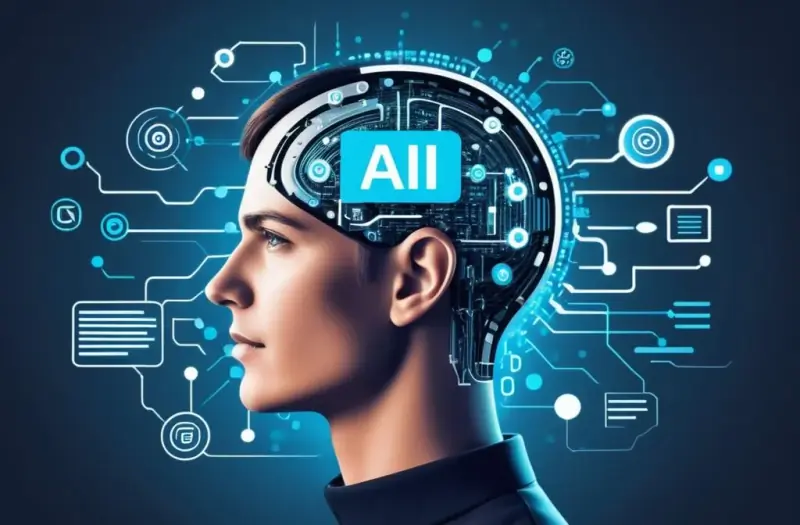
AI in digital marketing is all about harnessing vast amounts of data and using it to drive smarter, more efficient marketing strategies. With AI-powered technologies such as machine learning, natural language processing, and predictive analytics, marketers now have access to insights that were once unimaginable. These tools empower us to understand our customers on a deeper level, enabling us to deliver personalized content and experiences that resonate.
Understanding and Predicting Customer Behavior
AI helps marketers analyze customer behavior more precisely than ever before. By tracking user actions and preferences, AI-driven tools can predict future behavior, allowing for highly targeted marketing campaigns. Here’s how:
- Customer behavior analysis: AI tools analyze browsing and purchase history, creating profiles that reflect user interests and habits.
- Predictive analytics in marketing: AI algorithms predict which products or services a customer might be interested in, guiding marketing teams on where to focus.
- Real-time marketing insights: With AI, we receive instant data, allowing for agile decision-making based on current trends.
The end goal here is to provide each customer with a personalized experience that feels tailored to their unique preferences and needs.
Personalizing Customer Engagement with AI
Today’s consumers expect brands to understand them and anticipate their needs. AI-driven personalization has made it possible for marketers to deliver highly relevant content across various touchpoints.
Benefits of AI-driven Personalization
- Enhanced User Experiences: AI allows for individualized experiences, adapting content to suit user preferences.
- Higher Conversion Rates: Personalized campaigns resonate better, resulting in increased conversions.
- Efficient Resource Allocation: Automated personalization reduces time spent on manual tasks, freeing up resources for other strategic initiatives.
AI-Powered Content Creation
Content is at the heart of digital marketing, and AI is enhancing how we create, distribute, and measure the impact of content. AI-powered content tools help us generate targeted, relevant content at scale, ensuring that each piece is optimized to meet audience needs.
Intelligent Marketing Automation in Content Creation
Automated marketing strategies are invaluable in today’s fast-paced marketing landscape. AI content generators can help with:
- Keyword analysis and topic generation: AI tools can suggest trending topics and popular keywords for SEO optimization.
- Dynamic Content Adjustment: AI can tailor content in real-time based on user engagement, optimizing everything from blog posts to email newsletters.
- Machine learning in advertising: By analyzing successful ad campaigns, AI can recommend elements likely to perform well, such as imagery, text, and call-to-action buttons.
These capabilities allow us to create content that resonates deeply with our audience, providing value while also driving engagement.
Advanced Data-Driven Marketing and Customer Insights
AI gives marketers a profound level of data insights, turning complex datasets into actionable strategies. Data-driven marketing is not just a trend; it’s a necessity for brands that want to stay relevant in a world where customers are constantly bombarded with information.
Leveraging Data for Targeted Advertising
AI helps us identify and segment audiences more effectively, ensuring our advertising dollars are spent wisely. AI’s ability to analyze vast amounts of data allows for:
- AI-driven customer segmentation: Dividing customers into detailed groups based on behaviors, preferences, and demographics.
- Targeted advertising with AI: Reaching the right audience at the right time with tailored messaging.
- Predictive modeling: Forecasting how certain segments will respond to campaigns, helping marketers fine-tune strategies.
This use of AI in targeting not only increases campaign efficiency but also boosts ROI by focusing resources where they’re most likely to succeed.
Enhancing Customer Support with Chatbots and Virtual Assistants
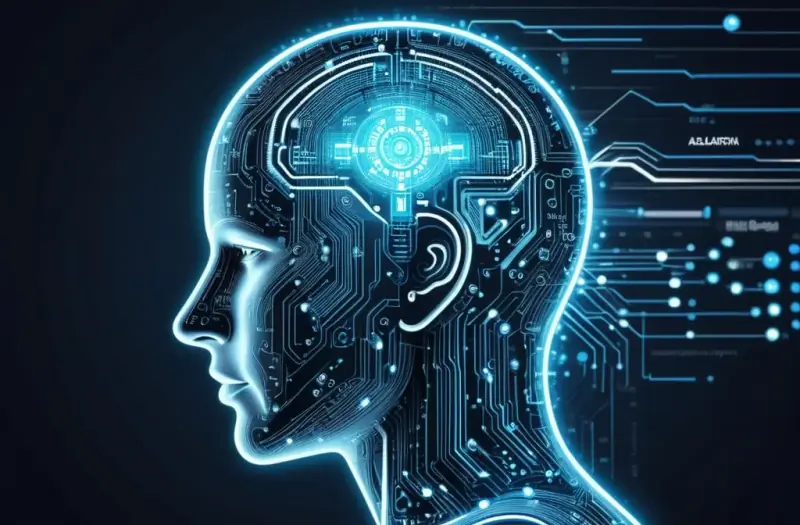
Chatbot customer support has been one of the most visible applications of AI in digital marketing. With AI-powered chatbots, brands can offer real-time assistance, providing users with answers and guidance whenever they need it.
- 24/7 Availability: Unlike human agents, chatbots are available around the clock, ensuring customers always have access to support.
- Natural language processing in marketing: AI enables chatbots to understand and respond naturally, creating a more human-like experience.
- Scalable Support: AI-driven bots can handle multiple conversations simultaneously, scaling support during peak hours without added costs.
As chatbot technology advances, it becomes increasingly effective at handling more complex queries, making it a valuable asset for brands that want to improve their customer service.
Predictive Analytics for Marketing Success
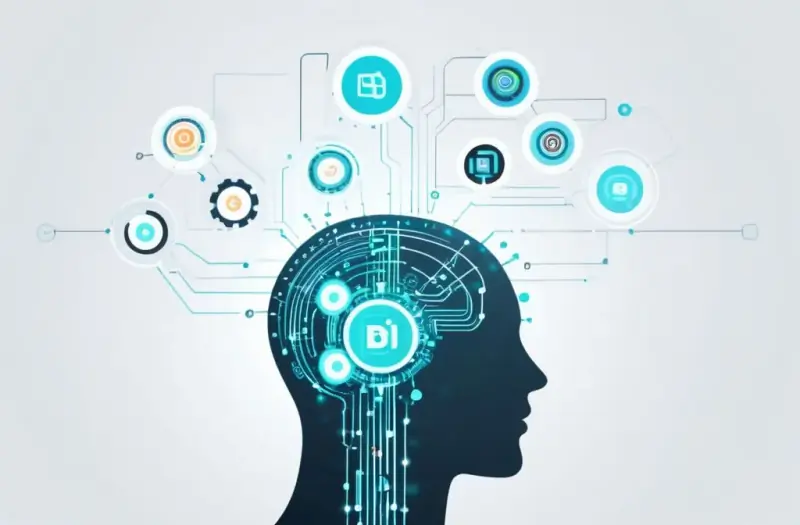
One of AI’s most powerful capabilities is its predictive potential. Predictive analytics allows us to anticipate trends and make proactive adjustments to our strategies.
- Anticipating consumer trends: AI-driven tools identify emerging trends by analyzing past data and current market behavior.
- Smart recommendation engines: By examining user preferences, AI can suggest products or services customers are likely to buy, increasing the chances of conversion.
- Deep learning for consumer trends: Deep learning algorithms dive into massive datasets to uncover patterns that would otherwise go unnoticed.
By leveraging these predictive tools, we can stay ahead of the competition and align our strategies with what customers truly want.
FAQs: How AI is Shaping the Future of Digital Marketing
How does AI improve customer segmentation?
AI analyzes behavioral data, allowing us to categorize customers into highly specific segments, ensuring that marketing messages resonate more effectively.
Can AI replace human marketers?
While AI automates tasks and enhances efficiency, human creativity and strategy are irreplaceable. AI complements human efforts rather than replacing them.
What role does sentiment analysis play in digital marketing?
Sentiment analysis helps brands gauge public opinion about their products, services, or even competitors. This allows for timely and relevant responses that resonate with consumers.
How is machine learning used in advertising?
Machine learning algorithms analyze past ad performance to optimize future campaigns, adjusting elements to improve engagement and conversions.
Is AI-driven personalization really effective?
Yes, personalized marketing powered by AI drives higher engagement and conversion rates by aligning content and offers with individual preferences.
Conclusion
Artificial intelligence is not only transforming digital marketing today but is also setting the stage for the future of the industry. By understanding and implementing AI-driven marketing strategies, businesses can better engage with their audiences, personalize experiences, and make data-driven decisions that maximize impact. From predictive analytics to real-time insights and intelligent customer support, AI empowers us to craft smarter, more responsive marketing campaigns that drive results.
Key Takeaways
- AI enhances customer engagement by delivering personalized experiences.
- Data-driven marketing powered by AI enables precise audience targeting and segmentation.
- Predictive analytics allow brands to anticipate trends and respond proactively.
- AI-powered content creation tools help marketers produce relevant, optimized content at scale.
- Chatbots and virtual assistants offer scalable, 24/7 customer support, enhancing customer satisfaction.
The future of digital marketing is undoubtedly intertwined with AI, making it essential for businesses to adapt and harness these technologies for continued success in an evolving landscape.
Popular Tags
ADS SPACE HERE


